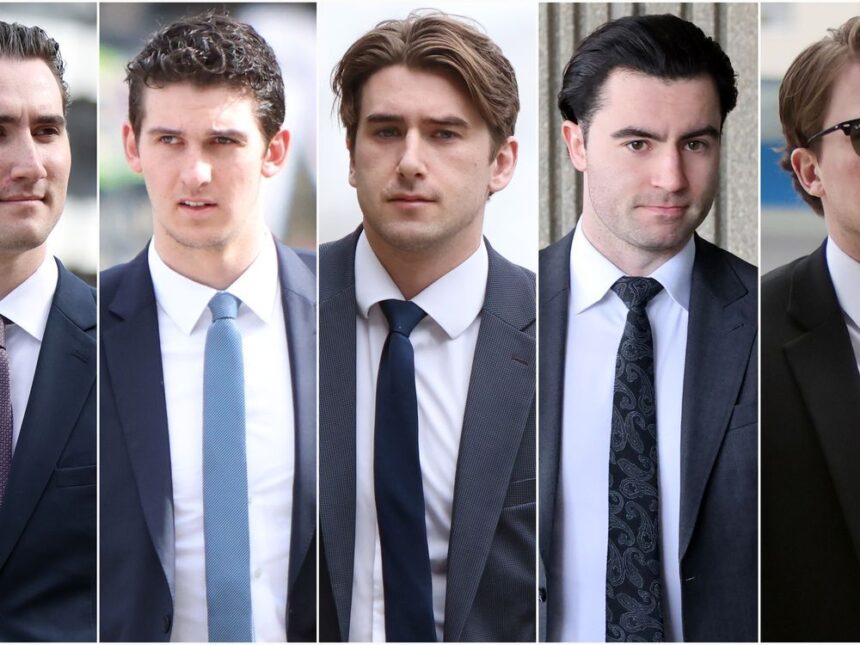In a pivotal moment during the ongoing sexual assault trial involving former NHL players, Jonah Gadjovich testified Monday that Alex Formenton approached him seeking advice before heading to a bathroom with the complainant during a 2018 incident at a London hotel.
Gadjovich, who played alongside Formenton on Canada’s world junior hockey team, told the Ontario Superior Court that Formenton asked, “Hey, should I go?” as the complainant led him toward a bathroom. The interaction occurred at a London, Ontario hotel following a Hockey Canada gala where team members were celebrating their gold medal victory.
“I said, ‘I don’t care what you do,'” Gadjovich testified, recalling his response to Formenton’s query. This exchange has become a critical element in the prosecution’s case against Formenton and four other former players—Carter Hart, Michael McLeod, Dillon Dubé, and Cal Foote—who all face sexual assault charges.
The complainant, identified in court documents only as E.M., alleges she was sexually assaulted by multiple players in McLeod’s hotel room. All five defendants have pleaded not guilty and maintain that any sexual activity was consensual.
Gadjovich’s testimony marks the first time a teammate not facing charges has provided direct evidence about the events of that night. He described returning to the hotel after the gala and gathering in McLeod’s room with several teammates. According to his account, E.M. arrived later and engaged in conversation with the group.
“At one point, the complainant got up and walked toward the bathroom, and Formenton followed,” Gadjovich stated. “That’s when he turned and asked me if he should go.”
Defence attorneys challenged aspects of Gadjovich’s testimony during cross-examination, questioning why this detail wasn’t mentioned in his initial police statement. Gadjovich acknowledged the omission but stood by his recollection, stating, “I’m certain that’s what happened.”
The case has drawn national attention across Canada and sparked renewed debate about hockey culture and accountability. Hockey Canada faced significant fallout when details of a settled lawsuit related to the incident emerged in 2022, leading to governance changes and the withdrawal of corporate sponsorships.
Legal experts following the case note its complexity. “Testimony from teammates who were present but not charged provides crucial contextual evidence,” said Toronto-based legal analyst Margaret Wilson. “The court must determine not just what happened, but whether there was genuine consent.”
As the trial continues, expected to last several more weeks, both prosecution and defense teams are working to establish a clear timeline of events. The prosecution argues the complainant’s level of intoxication made consent impossible, while defense attorneys maintain their clients reasonably believed consent was present.
In the broader context of sports and society, this case represents a challenging intersection of celebrity, accountability, and justice. As we observe this legal process unfold, we might ask ourselves: How will the outcome of this high-profile case shape future conversations about consent and responsibility within professional sports organizations?

























